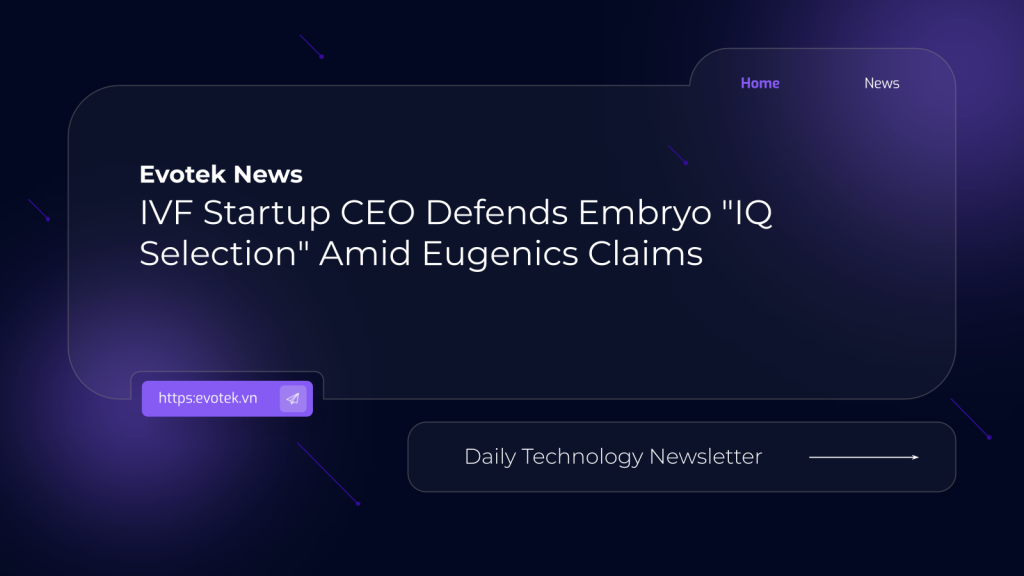An IVF startup is facing criticism after its CEO defended the company’s practice of allowing parents to select embryos based on traits like predicted IQ. Nucleus Genomics offers a service that ranks embryos based on desired attributes, a practice the CEO calls “preventative medicine.”
Nucleus Genomics’ Embryo Selection Process
Nucleus Genomics recently announced its Nucleus Embryo service, offering prospective parents the ability to use “genetic optimization software” to rank their embryos. For a fee of nearly $6,000, parents can compare their embryos’ projected IQ, height, eye color, and almost 900 other traits before making a decision. This extends beyond existing screening for gender and conditions like Down syndrome.
CEO’s Defense Sparks Debate
Kian Sadeghi, the founder and CEO, responded to the backlash on social media, questioning why people were classifying the practice as eugenics. He argued, “Since when is preventative medicine eugenics? And if a couple exercises their right to choose their own embryo based on what matter most to them… that’s eugenics? We have lost the plot.”
Sadeghi further explained that the company calls it “genetic optimization,” emphasizing that it’s about “thriving, in every sense: cognitively, physically, etc.”
We called it “genetic optimization”. We are saying exactly what it is.
Everyone talks about optimizing health. When someone says that, they don’t just mean the absence of disease. They mean thriving, in every sense: cognitively, physically, etc.
There is no “diseases” and…
— Kian Sadeghi (@KianSadeghi5) June 4, 2025
Critics Allege Eugenics
Critics argue that selecting and ranking human beings based on desired characteristics is akin to eugenics, treating them as products. One commenter noted, “You’re defining eugenics but giving it a more positive name.” Another pointed out the problematic nature of including IQ in the selection process, questioning whether someone with a lower IQ is inherently less healthy.
Another user stated, “What you are describing is literally eugenics. Definitionally, it isn’t even medicine, because it’s predicated on the destruction of human life….”
The Fertility Industry and Ethical Concerns
The debate highlights broader concerns about the fertility industry, where children created through artificial reproductive technologies are sometimes treated as commodities. Practices like sex selection, embryo custody battles, and even the trading of embryos raise ethical questions about the commodification of human life.
The Bottom Line: Are Embryos Commodities?
The discussion emphasizes the importance of viewing human beings as more than products to be bought, sold, or ranked based on genetic characteristics. The largely unchecked fertility industry raises concerns about the potential for children to be treated as commodities.
Source: Live Action News

 日本語
日本語 한국어
한국어 Tiếng Việt
Tiếng Việt 简体中文
简体中文